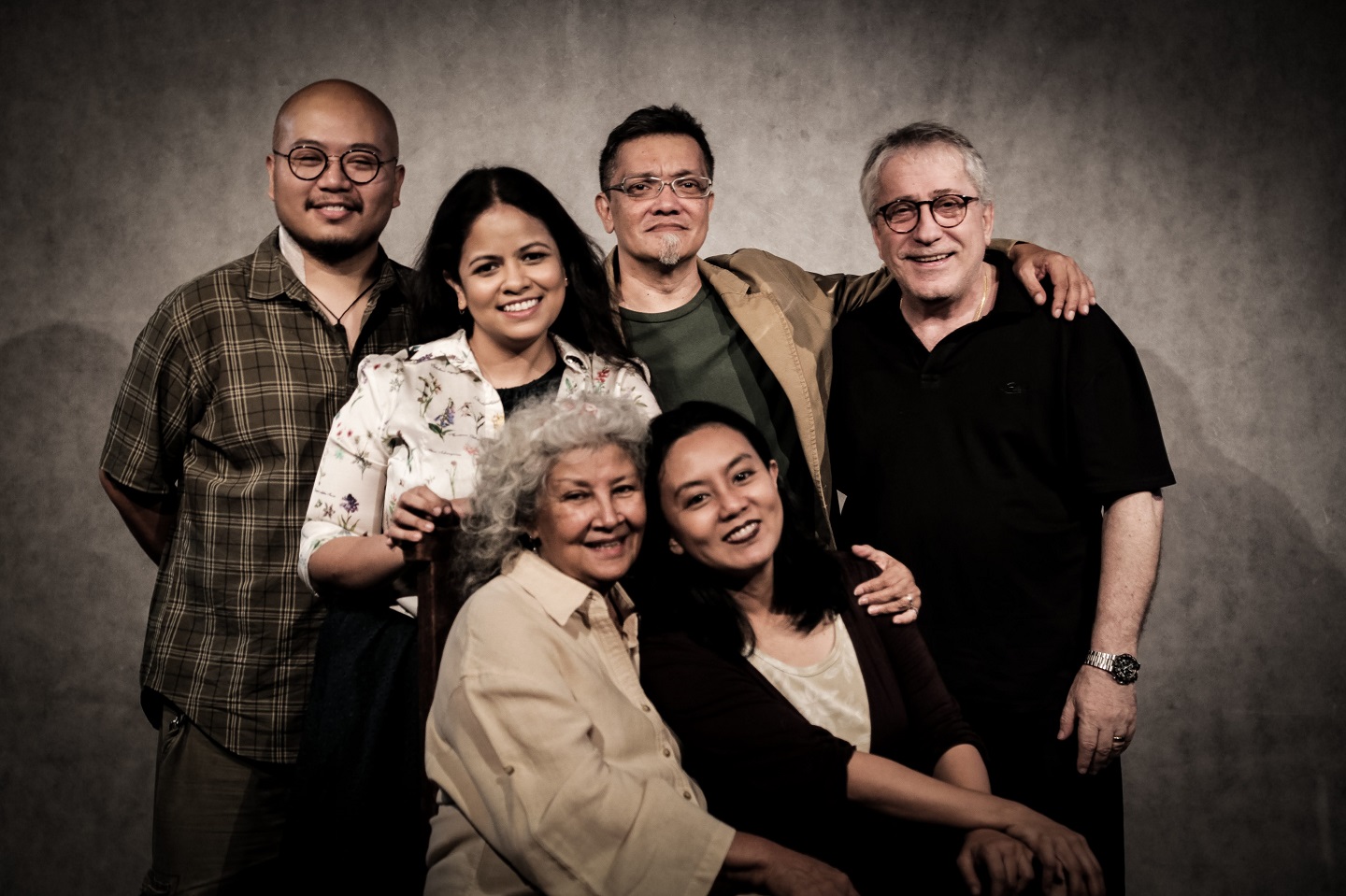
From top left: Omar Ali, Shamaine Othman, Na’a Murad, Joe Hasham, Datuk Faridah Merican and Marina Tan (Photo: klpac)
These first few months of 2019 have proved to be an exciting time in the realm of Malaysian theatre, especially in terms of original new works. And one of the most anticipated new plays opens this week — The Actors Studio Seni Teater Rakyat’s Transitions.
Directed by Omar Ali (with Joe Hasham as co-director) and written by Marina Tan — who is perhaps best known for her evocative monologue writings such as What Am I, A Bloody Banyan Tree? — the play is a vehicle for Datuk Faridah Merican in what is arguably her first major starring role since 2008’s Bottom Top. A highlight in the theatre company’s 30th anniversary, the play gets another boost from its two other multi-talented stars, Na’a Murad and Shamaine Othman, respected screenwriters and directors in their own right.
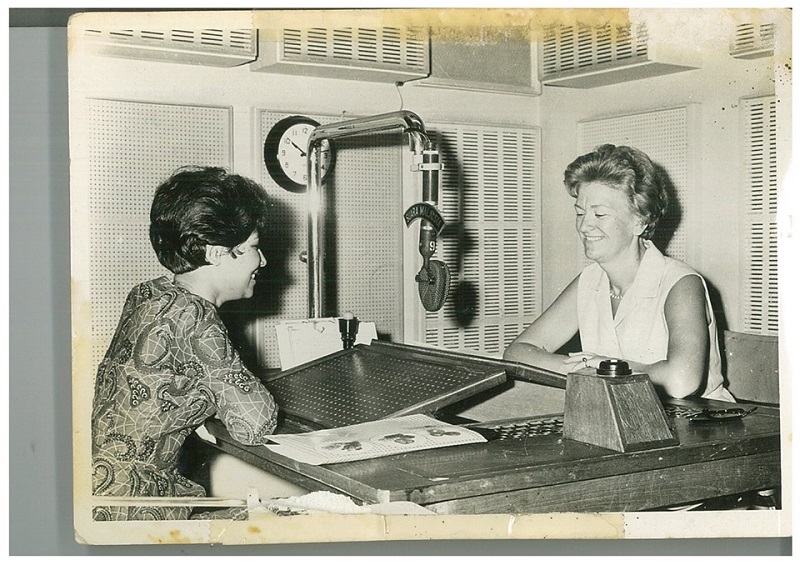
Na’a is a bit of a chameleon, though a low-key one. While it is not all that uncommon in Malaysia’s arts landscape for artistes to wear various hats to make ends meet, the industry veteran is among the few — and certainly one of the first — to have an enduring presence in film, TV, theatre and more.
However, like a true creative, labels do not seem to have much bearing on him. Instead, he gets noticeably more animated when talk turns to stories and ideas.
“I have actually been indirectly involved in Transitions from the beginning. Marina, myself and another friend, Christina Orow, have this thing in common — we are all fans of the Japanese movie, Welcome Back, Mr. McDonald. And from a few years back, we had met a few times to explore the idea of writing together, doing a play about radio, though nothing really came of it. But the idea must have stuck in Marina’s mind, and perhaps the idea of Malaysia’s radio history, the pioneers of the arts, inspired her. Anyway, last year-end, a few of us came together to do a reading of her script,” shares Na’a.
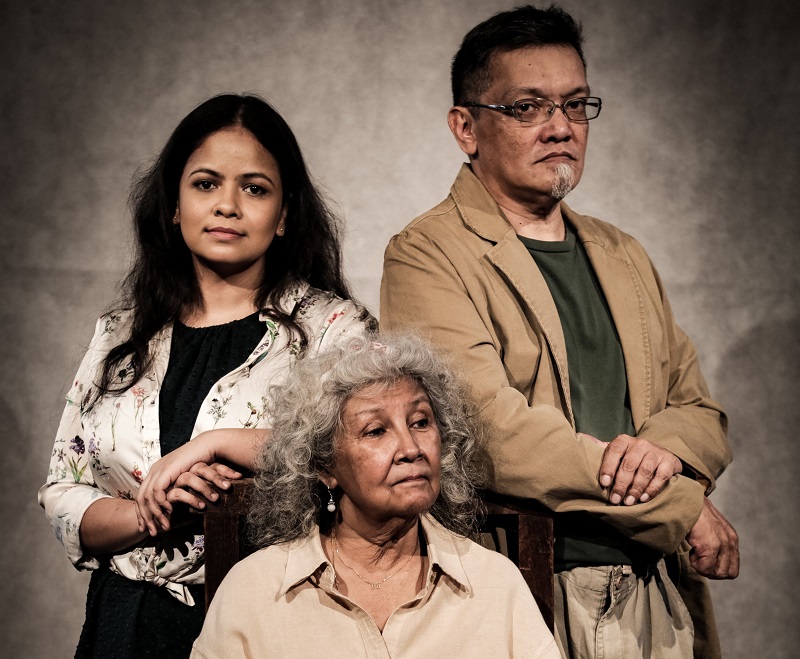
In a somewhat biographical role — considering her own experience as a Radio Televisyen Malaysia host in the 1960s — Faridah plays Kathy Khan, the founder of a small community radio station called SeniSound Heritage. When she suffers a massive stroke, a journey, from past to present, of her remarkable life is played out.
Na’a plays Kathy’s son-in-law, Roy. “This is a guy who is an anachronism. He is one of those scholarly types who loves history, the arts, and is a college lecturer. He is not only in love with the history of Malaysian radio, but also music … all sorts. Having worked with Kathy part-time in radio and being the son-in-law of one of his heroes is, for him, the pinnacle. When the crisis happens, he’s totally caught up in it,” Na’a says of his character, adding that he identifies with Roy as a history and arts buff.
History here is told through a personal lens, albeit a fictional one. Nevertheless, it straddles real historical narrative as Tan has weaved in biographical anecdotes, events and references based on real events — Faridah’s own experiences and that of other Malaysian veteran radio figures. For a more authentic experience, former radio hosts such as Patrick Teoh and Datuk Yasmin Yusoff will once more have their voices filter through the airwaves by playing themselves.
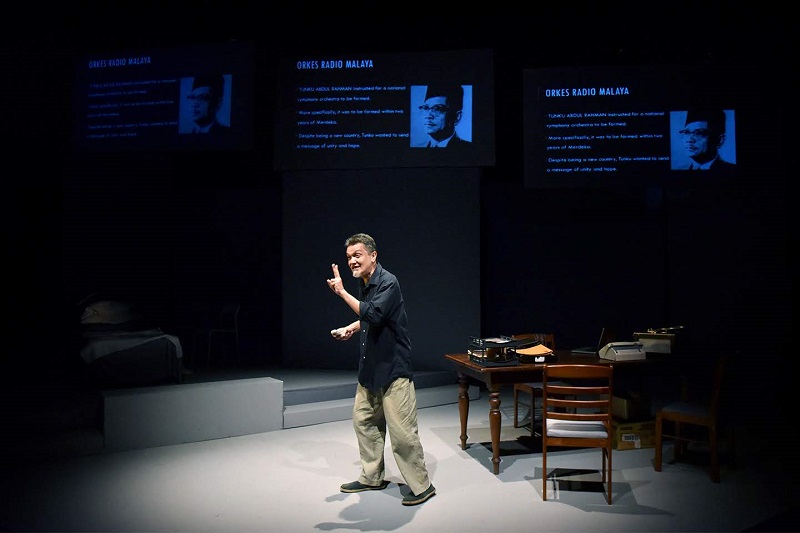
“There are a lot of audio and visual elements in the storytelling. It’s not just told through dialogue. Some parts feel like when we tune in to the radio, fading in and out of different channels. And so it’s not structured in the way of a traditional drama, which makes it interesting even if you’re not drawn to the story itself,” Na’a explains.
With reverberations of issues like ageing, sickness and fighting for a place in a patriarchal society, Transitions embraces its poignant tone wholeheartedly. But Na’a notes that the sense of poignancy may not be where one would expect to find it.
“Because the story is not told conventionally, the impact may not necessarily come with big emotions. It could be a moment of realisation, of people realising what they need to do to move on. Just like in real life, not all questions are answered. But you would at least know where to go next,” he observes.
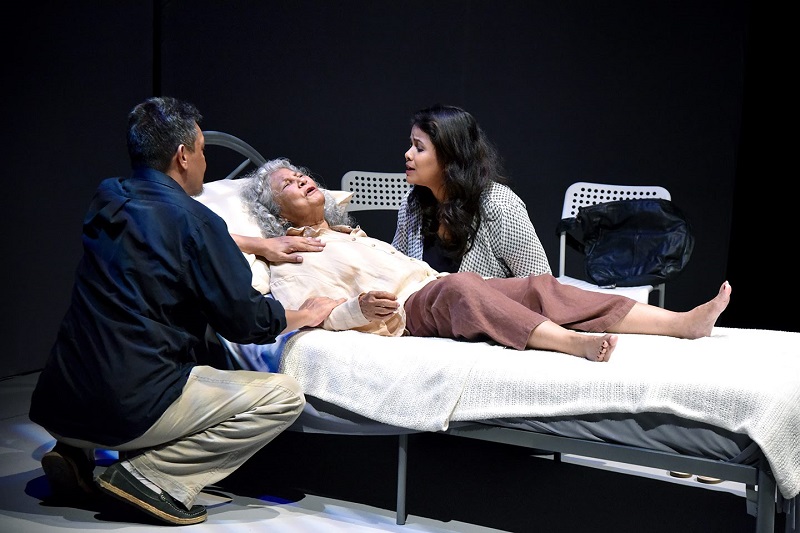
The story of Kathy, one of resilience, has a few points in common with Na’a. A film major who returned to Malaysia to find the filmmaking landscape not quite as ideal as expected in terms of opportunities, he transitioned into screenwriting while dabbling in theatre.
In fact, he was a founding member of Instant Café Theatre when it started in 1989, being mainly involved as a writer, and only going on stage for bit roles when needed. “I didn’t think acting would become my thing,” he recounts.
Na’s still considers himself primarily a TV and film screenwriter and director despite having acted consistently across the theatre stage, the small screen and the silver screen.
But then again, when you work in an industry where every project goes through a long incubation period and where dead ends and stalled development are common, survival means diversifying. For him, that includes venturing into doing voice-overs and, at one point, even animation — a three-year project he helmed as motion capture director and voice director, and voiced a part as well.

That creative diversity sets him apart from the other well-known Murad, older brother Jit. Acknowledging that comparisons are inevitable, he says their trajectories have, nonetheless, taken them on different paths.
“When you come to the world of theatre, Jit’s name is up on the wall. But in the TV and film industry — he is a player — not as much as I am,” Na’a says matter-of-factly.
Coming back to Transitions, Na’a says it will be a great opportunity to see and learn about a part of Malaysian history that has not been recorded much. “It’s a journey of the history of a person, of Malaysian radio and indirectly, of the country,” he sums up.
'Transitions' is showing at klpac until May 26. For ticketing details and showtimes, see here. This article first appeared on May 20, 2019 in The Edge Malaysia.


